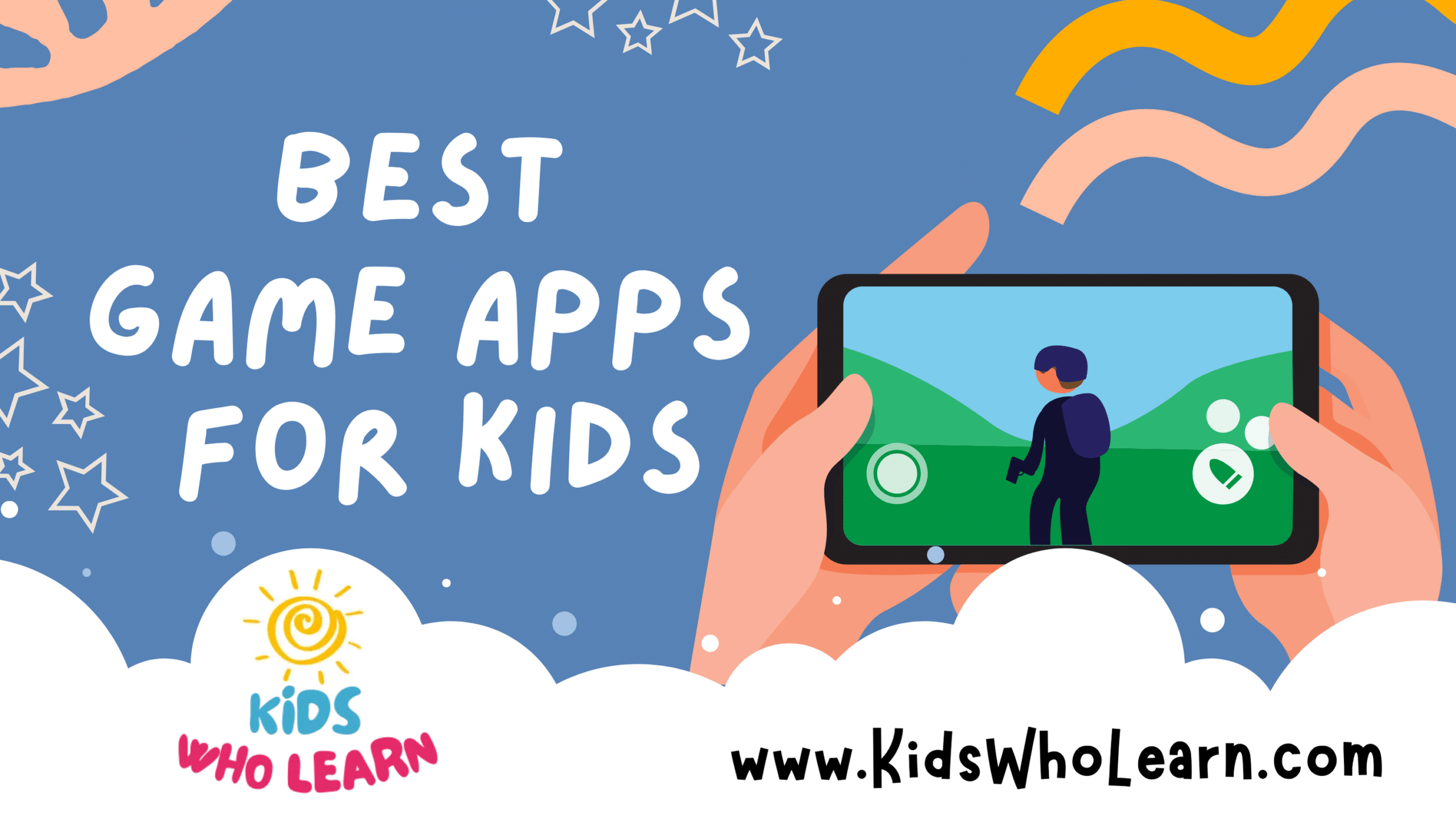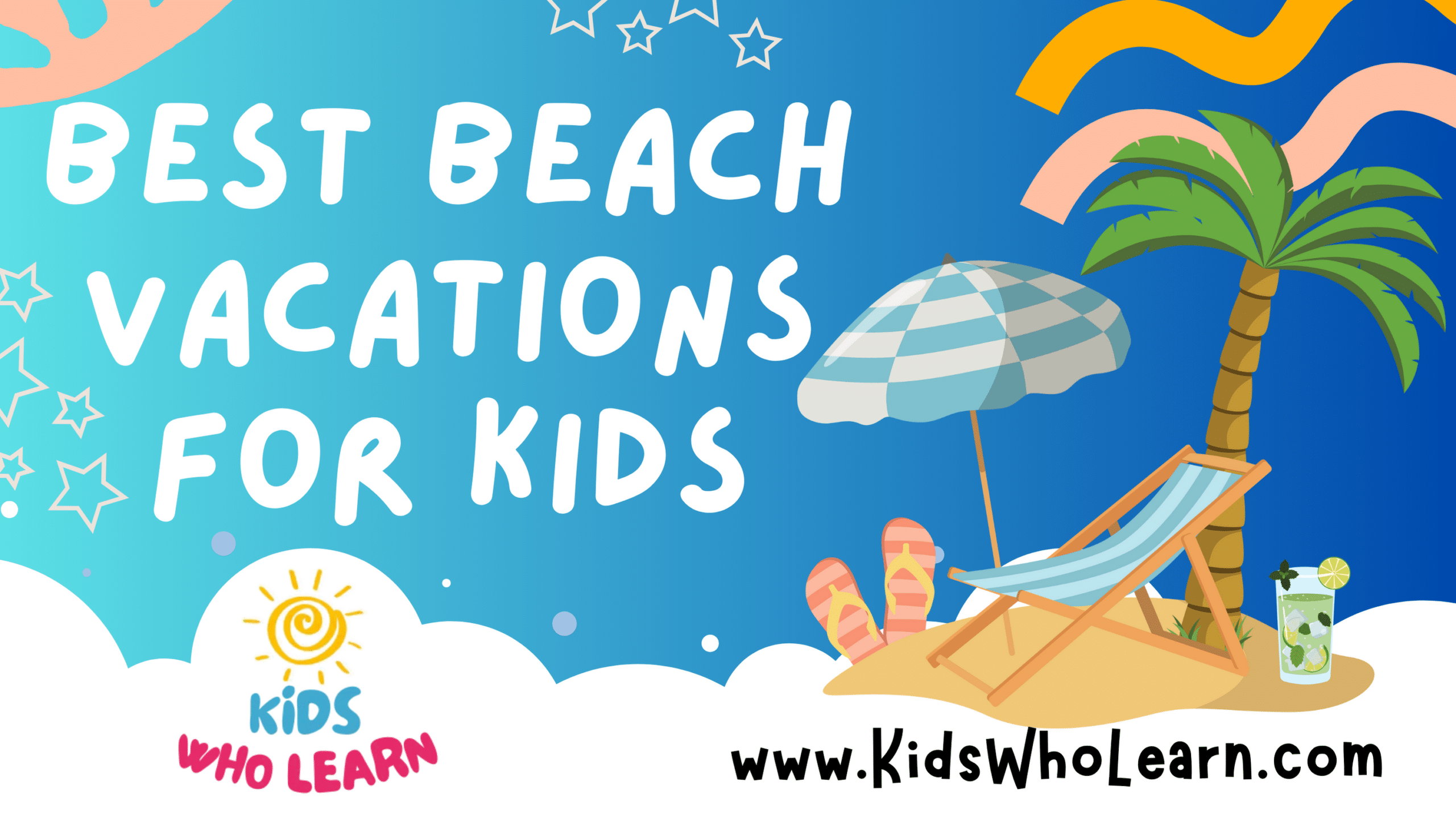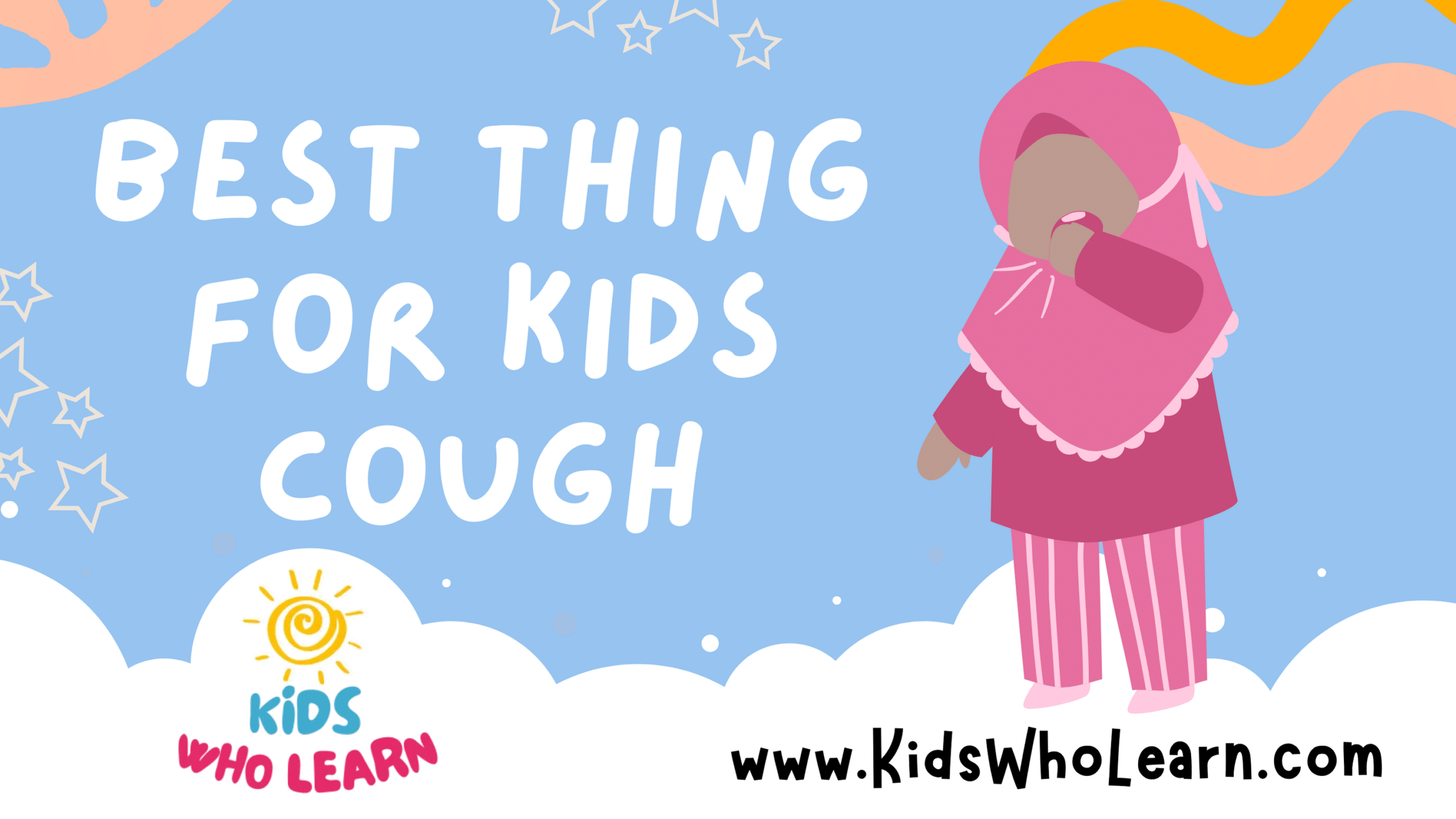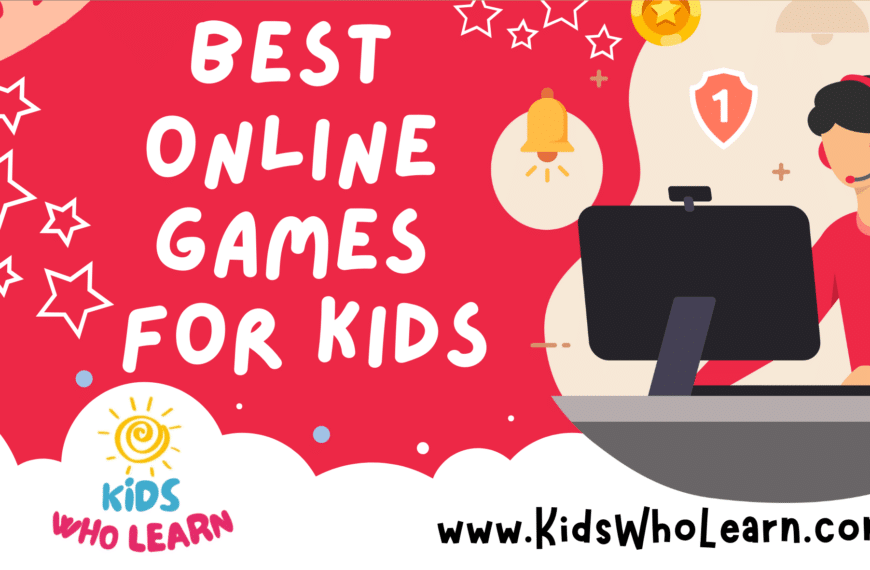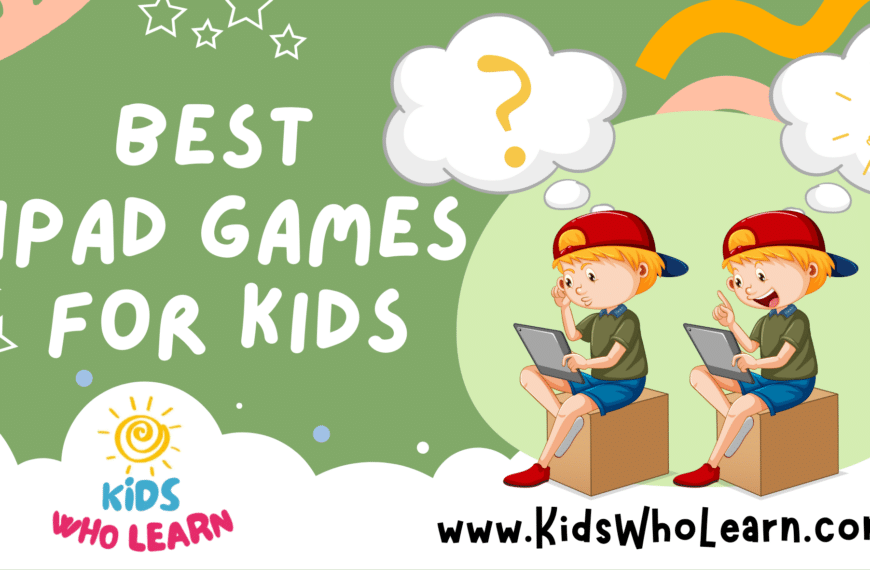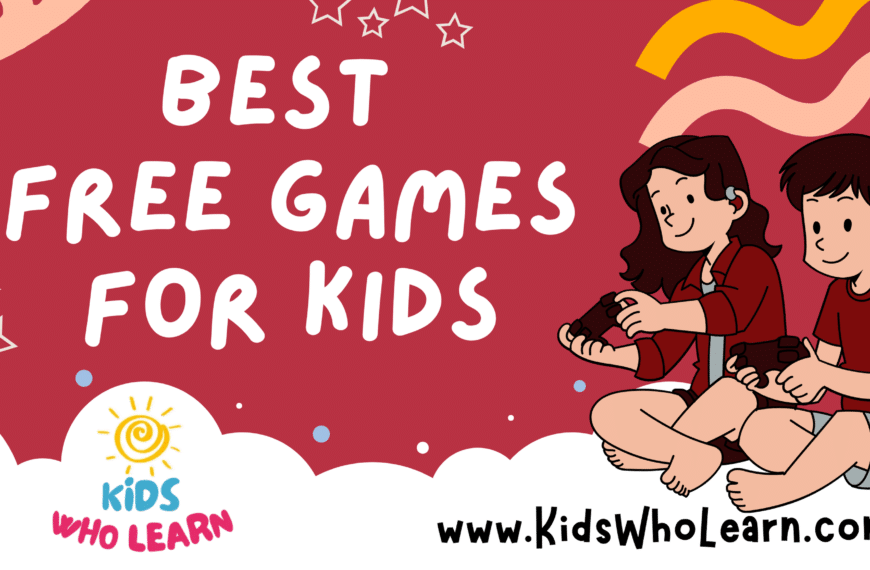In today’s digital age, we are witnessing an impressive variety of game apps designed for children. Our focus is on curating a collection of the best game apps that offer a perfect blend of educational content and entertainment. As we sift through the plethora of options, we prioritize those that strike a harmonious balance between fun and learning, ensuring that our kids are not only engaged but also enriched by their screen time.
Navigating through the maze of available game apps, we diligently assess each one for its ability to enhance learning while providing a safe and enjoyable digital playground for children. We consider app safety and digital wellbeing essential criteria, alongside compatibility with various devices, to guarantee an inclusive gaming experience. Our commitment is to provide our kids with access to innovative games that cater to their diverse needs and interests without compromising on quality or their wellbeing.
Key Takeaways
- A selection of game apps has been chosen based on their educational and entertainment value.
- Kid-friendly interfaces and safety features are paramount for an ideal digital play experience.
- These game apps are compatible across multiple devices, ensuring accessibility and convenience.
Evaluating the Best Game Apps for Kids
In our thorough investigation to find the best game apps for kids, we concentrate on apps that maximize engagement while ensuring safety and privacy. We recognize the necessity for age-appropriate content and rely heavily on methodical research, including reviews and guidelines by respected bodies like the American Academy of Pediatrics.
Criteria for Selecting Top Apps
When we select the top apps for kids, several criteria are paramount. Engagement is crucial; apps should captivate a child’s attention with interactive and enjoyable content. Safety is non-negotiable, with apps needing robust measures to protect children online. Privacy also stands out, as the best apps must comply with privacy regulations, ensuring children’s personal information is secure. We look for signs that an app promotes developmental skills aligned with its target age group. Lastly, we seek apps that have received recognition for their quality and efficacy from reputable organizations or awards.
Importance of Age Group Specificity
Appropriate content varies widely across different age groups. For little kids and preschoolers, simple, colorful, and intuitive interfaces with sensory-focused interaction are best. As children grow, the apps should introduce more complex concepts and challenges. We prioritize apps designed with a clear understanding of these developmental stages to ensure they serve the right purpose for the right age group.
Understanding App Reviews and Ratings
We meticulously analyze app reviews and ratings for genuine feedback from users. This involves dissecting comments for insights on user experience and potential issues. Best apps often have a pattern of positive feedback across various platforms. Ratings, while useful, need to be considered alongside the number of reviews and the context of any criticisms. A comprehensive look at reviews aids us in discerning trends and patterns that signify the app’s effectiveness and how well it meets the expectations of kids and parents alike.
Educational Value and Learning Enhancement
We recognize the immense potential game apps have to enhance learning and education. They can serve as powerful tools to reinforce language, math, and other academic skills, as well as to foster creativity and critical thinking.
Learning Apps for Language and Math
In our research, we have found that apps like Duolingo effectively complement traditional language learning methods used in schools. Children can build their vocabulary and grammar skills through interactive lessons that adapt to their learning pace. Similarly, math apps provide dynamic ways for kids to practice arithmetic and problem-solving. Apps like Math Tango make use of storytelling and interactive challenges to make math learning more engaging.
- Duolingo:
- Languages Offered: Over 30 languages
- Key Features: Personalized learning, rewards system
- Math Apps:
- Popular Examples: Math Tango, DragonBox
- Learning Focus: Arithmetic, Geometry, Algebra
Encouraging Creativity and Critical Thinking
Game apps like Minecraft allow children to explore virtual worlds where they can build and create, encouraging innovative thinking and problem-solving. These platforms serve not just as entertainment but also as a canvas for imagination, helping children to think outside the box and develop a sense of aesthetics alongside technical skills.
- Creativity Apps:
- Example: Minecraft
- Benefits: Enhances spatial awareness, promotes resource management
Interactive and Puzzle Games for Cognitive Development
Interactive game apps are instrumental in fostering cognitive development in children. Puzzle games, in particular, can enhance logical reasoning and pattern recognition. Our analysis shows that when children engage with interactive games like Epic! that also offer a vast library of books, they not only enjoy the experience but also improve their reading and comprehension skills.
- Cognitive Games:
- Examples: Epic!, Lumosity Kids
- Core Skills Developed: Memory, Attention, Problem Solving
Entertainment and Play
In this section, we outline various apps that provide engaging entertainment and playtime for children. From embarking on digital adventures to expressing musical creativity, these apps cater to diverse interests and activities.
Adventure and Role-playing for Kids
Minecraft offers an expansive universe where kids can exercise their creativity and engineering skills through building structures and exploring. This sandbox video game provides an opportunity for imaginative play and collaboration. Monument Valley, with its visually stunning puzzles and serene landscapes, encourages problem-solving and captivation with its M.C. Escher-like levels.
Musical Games to Nurture Talent
Musical games such as those within the Toca Boca series enable children to explore various instruments and musical styles. They can create personal tunes or play along to some pre-set tracks, fostering an early appreciation for rhythm and harmony. This combination of music and interactive touch-screen technology makes learning fun and accessible.
Apps for Kids’ Leisure Activities
Art and Drawing Apps: Kids can immerse themselves in digital canvases, experimenting with colors and shapes. It’s a mess-free way to encourage artistic talent.
Virtual Pets and Toys: Augmented reality games allow children to care for pets or play with toys without the need for physical space.
Kitchen Games: Cooking apps introduce the basics of recipes and kitchen activities in a fun, gamified environment. These simulate real-life experiences and can inspire future culinary experiments.
App Safety and Digital Wellbeing
Ensuring the safety and wellbeing of children in the digital environment is crucial. We focus on balancing screen time, safeguarding privacy, and ensuring the content is suitable for young audiences.
Screen Time and Balance
The American Academy of Pediatrics recommends setting consistent limits on hours per day of media use. It’s important for kids to have a variety of free time activities, not just screen time.
- Recommended Daily Screen Time by Age:
- Children under 2 years: None, except video chatting.
- Children aged 2 to 5 years: No more than 1 hour per day.
- School-age children and adolescents: Parents should place consistent limits.
Promoting outdoor play and offline hobbies helps maintain a healthy balance between the digital and physical worlds, ensuring that technology enhances our children’s lives without dominating them.
Privacy and Parental Control Features
Privacy and safety controls are vital when kids use smartphones and tablets. Parental control features on devices and within apps can help manage what children can access.
- Key Privacy Settings:
- Personal Information: Ensure settings prevent sharing of personal details.
- Purchases: Set requirements for passwords or approval for in-app purchases.
- Location: Turn off location services for apps where it isn’t necessary.
It’s our responsibility to utilize tech tools that allow us to monitor and control the digital footprint and online interactions of our children to maintain their privacy and security.
Kid-friendly Content and Social Media Use
Games like Fortnite and apps like TikTok have become popular among children, but not all features are appropriate for all ages. It’s essential to verify the age ratings and content descriptions of apps and games to ensure they are suitable for children.
- Best Practices for Safe Content:
- Age-appropriate Apps: Choose apps designed specifically for children.
- Social Media Monitoring: Keep an eye on children’s social media use, including who they’re interacting with and the type of content they’re posting and viewing.
By actively selecting kid-friendly content and supervising social media use, we can create a safer digital environment for our children to explore, learn, and connect.
Compatibility and Accessibility
When considering game apps for kids, we focus on ensuring that these apps meet various compatibility standards and are accessible to children with diverse needs. Our aim is to encompass a range of devices and learning requirements.
Apps Across Various Platforms
In today’s tech landscape, we find that the best learning apps offer cross-platform support. This means that whether kids are using an iPad, Android tablet, or even a PC, they have access to their favorite educational games. For instance:
- Toca Boca: Available on iOS and Android, these apps are designed with simplicity and creativity for young minds.
- ABCmouse: This learning app is accessible on both mobile devices and PCs, allowing for a seamless transition between home and school use.
Support for Special Educational Needs
It is imperative for game apps to have features that cater to children with special educational needs. Accessibility features such as audio instructions and customizable text sizes are essential. Here are a couple of examples:
- Endless Alphabet: Uses visual and audio cues to enhance learning for children with dyslexia or auditory processing issues.
- Proloquo2Go: A highly customizable app providing support for children who have difficulty with speech through the use of pictograms and text-to-speech technology.
Availability of Offline Access
We understand that internet connectivity should not be a barrier to learning. Therefore, it’s crucial for game apps to offer offline access. Here’s how some apps stand out:
- Peak – Brain Training: Provides a selection of offline-accessible games focusing on cognitive skill development.
- Khan Academy Kids: Offers an extensive array of educational content that young learners can access without an internet connection, promoting learning anytime, anywhere.
Innovations in Kids’ Gaming
We witness a plethora of advancements in kids’ gaming that merge education with entertainment. The advent of new technologies has led to games that enhance learning, provide immersive experiences, and encourage critical thinking through interactive play.
Emerging Trends in Educational Tech for Kids
In the sphere of educational tech for kids, games are increasingly leveraging interactive elements to foster learning. These products focus on developing skills such as critical thinking and problem-solving. For instance:
- Interactive Storytelling: Games that use narratives to teach history or science.
- Puzzle-Based Learning: Apps that integrate math and logic puzzles to enhance cognitive abilities.
The Role of Virtual and Augmented Reality
Virtual and Augmented Reality (VR/AR) are transforming kids’ gaming by offering immersive video experiences that go beyond the screen to teach and entertain. Here are some applications:
- Virtual Field Trips: VR games allow children to explore distant locations and historical events.
- Augmented Reality Learning: AR apps enable kids to interact with digital elements superimposed on their real-world environment, making education a tangible and engaging experience.
Gaming and Artificial Intelligence
Artificial Intelligence (AI) in gaming is not just about creating responsive adversaries. It’s about personalizing educational content, so it adapts to individual learning styles. We see applications like:
- Adaptive Learning Games: AI-driven games that adjust difficulty levels to suit the child’s learning pace.
- Language Learning: Games employing AI to assist with language acquisition, pronunciation, and vocabulary.
Conclusion
In our examination of the best game apps for kids, we’ve highlighted options that champion engagement and creativity. It’s imperative to us that the apps we recommend foster a positive and educational environment for children.
- Engagement: Our choices provide interactive and captivating gameplay that keeps kids absorbed in a constructive manner.
- Creativity: We focus on apps that encourage imaginative play and creative thinking, crucial for child development.
We trust these apps to offer quality content that aligns with our criteria, ensuring that the time kids spend on them is not only fun but beneficial. In choosing the best game apps for our young users, we take pride in selecting those that offer a balance of entertainment and educational value.
Frequently Asked Questions
Selecting the right game apps for children can significantly contribute to their educational and developmental progress. We focus on apps that are both well-regarded in the educational space and loved by children within the stated age ranges.
What are the top-rated educational game apps for children aged 4 to 8?
For children aged 4 to 8, we find that “Endless Alphabet” and “DragonBox Numbers” are top-rated for learning language and math skills. These apps combine interactive play with educational content.
Which free game apps are most engaging for toddlers to enhance learning?
“PBS Kids Games” and “Fish School” are highly engaging free apps for toddlers. They offer a variety of games that cover different subjects, ensuring a holistic learning experience.
Can you recommend some engaging game apps suitable for 7-year-old kids?
“Prodigy Math Game” and “Adventure Academy” are amongst the highly recommended apps for 7-year-olds. These apps offer a compelling blend of fun and educational content that keeps children engaged.
What are the most popular game apps among kids aged 5 to 9?
“Toca Boca” series and “Minecraft” are extremely popular among children aged 5 to 9. They stimulate creativity and problem-solving through their open-ended gameplay.
What are the most commonly downloaded game apps for kids on iPads?
On iPads, “ABCmouse.com” and “Epic!” are some of the most downloaded apps for kids. They provide a wealth of educational activities with a user-friendly interface.
Which game apps are both fun and educational for children under 10?
We recommend “BrainPOP Jr. Movie of the Week” and “Quick Math Jr.” as apps that are both enjoyable and educational for children under 10. These apps are designed to make learning interactive and entertaining.

